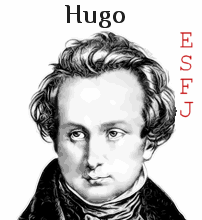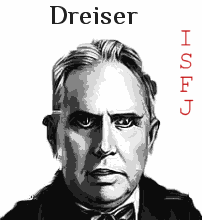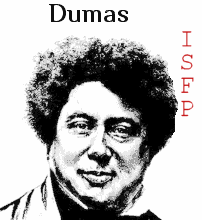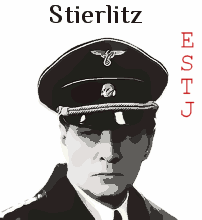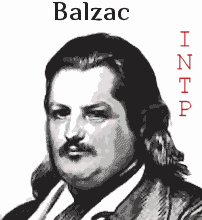The Creative function in the information model of the human psyche is actually his way of communicating with the outside world and solving problems at any given minute. The brain is constantly deciding what and how we will do and the creative one just provides this by trial and error.
Creative is a multifunctional tool. This blade doesn't fit, let's try others. Failure does not upset, but only causes a desire to find a suitable option. Creative is used easily, according to it a person quickly learns from mistakes, willingly discusses, criticizes and assimilates information.
The creative function is conscious because it, like the Base one, is in the ego block and you always work with it in pairs. It is the base one that ultimately analyzes the result of the application of the creative and makes the final verdict. Because of the ease of use of the creative, the negative aspects of the actions on it also follow. Often, the methods of decision are "far-fetched", and due to ill-thought-out can even harm a person.
The information model in socionics determines which aspect constitutes the creative function of each personality type.
Consider the manifestations of creativity for all possible aspects.
Experiential Sensing are a creative function in
Hugo and
Stirlitz. White Sensing is our own senses that manifest in our appearance and ability to create a comfortable environment for ourselves. People with creative
Si appreciate and know how to create comfort and always care about their health and the health of their loved ones.
Such people are inventive in matters of fashion, cooking and creating comfort. They attach great importance to appearance and have good taste, as well as love and know how to cook well. Stirlitz is a perfectionist - he likes to bring everything to perfection, often to the detriment of other things, and Hugo loves to receive guests so much that he can "strangle" him with his hospitality.

Creative Extraverted Ethics, aka Black Ethics (Fe) or "Ethics of Emotions"
The Emotive Ethics are creative in
Dumas and
Yesenin. Black Ethics is the ability to properly express emotions and to influence and manipulate people through emotional expressions.
Creative Black ethics are always the soul of society, they love cheerful companies and various everyday joys. They are peaceful and friendly. Dumas always tries to extinguish the brewing conflict and return to a comfortable state, and Yesenin himself can make a scandal in order to be able to manipulate the reaction of people.
Both are able to genuinely sympathize with people who need it. Both love the expression of emotions in life and are able to manifest them in poetry, painting, music.
They are not as emotionally strong as the base Black ethicists, but they are distinguished by a wide variety of emotional techniques and do not try to solve everything in a row with the help of emotions. They can retreat if their emotional impact is not successful. The main goal of Dumas's creative Black ethics is to bring its owner into a comfortable mood, and Yesenin to achieve some long-term goals. And if there is no motivation, then they do not show emotions.

Creative introverted logic, aka White Logic (Ti) or "logic of relations"
The Structural Logic is creative for
Don and
Zhukov. White Logic is responsible for understanding formal rules and relationships. Any object is perceived as a hierarchical system with its own patterns. Creative White logicians easily and quickly master the exact sciences, foreign languages and the computer. They are able to understand the relationships between events, build various classifications, and logically explain the causes of phenomena.
These are lovers of collecting information, processing it and drawing conclusions. Don has an outstanding associative thinking, which allows him to make very bold and extraordinary decisions on the basis of the information received. Sometimes his unusual associations and conclusions can be expressed out of place and put others in an awkward position.
Zhukov is constantly learning and collecting information in order to apply it to expand his living space and to make people respect themselves.

Creative Extraverted Sensory, aka Black Sensing (WS) or "Volitional Sensing"
It's hard to stop a creative Black Sensoric from doing what he's set out to do. Maxim is intolerant of any disorder within the system that exists in his head. According to him, the system is stable when it is based on strict subordination, so he demands from subordinates and tries not to argue with his superiors.
Dreiser knows how to persuade people to the system of his ethical values, which are of paramount importance to him. He will defend his relationship with all his might. For a loved one will go to any th, regardless of the consequences. He won't let you talk badly about your friends and yourself. If they try to exert pressure on him, he can fight back, exceeding the necessary measures. Very stubborn, reluctant to change his mind.
Dreiser does not tolerate any deviations from the order he has established in his house and can make a scandal because of a trifle.
The Temporal intuition is creative in
Hamlet and
Jack. White Intuition is figurative abstract thinking, which is responsible for the sense of time and the ability to predict the course of events. The creative function, although not as strong as the base one in determining timeliness, is more flexible, so people with a creative intuition of time are constantly testing different time-appropriate moments for their actions.
Creative white intuitives feel great in a rapidly changing situation. Hamlet is a master of manipulating time, he equally perfectly feels the rhythm and knows how to pull a pause. Everything he does is always very timely. Petty punctuality is not important to him, he can be late for a meeting - Hamlet feels the time strategically, he knows when to speak globally in order to attract attention and achieve something significant.
Jack knows how to put time at the service of his business acumen. He knows when to wait and when it's time to act. He does not like slowness in any form and hates empty pastime. "Time is money", this motto was probably invented by Jack.

Creative Extraverted Logic, aka Black Logic (Te) or "Practical logic"
Practical logic is creative in
Balzac and
Gabin. Black Logic is responsible for understanding the sequence of actions - "what and in what order you need to do in order to spend less effort, time and resources on it."
Creative Black logicians are able to find the right solutions, inventive, feel the benefit. They try not to engage in useless or unnecessary business, and try to bring all the work to the end.
Balzac likes to instruct or criticize others because by giving advice he realizes his base intuition of time. Since his base "foresees the future", Balzac tries never to risk anything and always thinks about the consequences of his participation in something. Very diligent, carefully works out the details. Anticipating the possible consequences, at the end of the work he carefully checks what has been done in order to avoid mistakes.
Gabin's Practical logic solves the problems of its base function - to achieve maximum comfort, both in the process of work and in the final result. Any problem or technical problem, he solves methodically and rationally, dividing it into several stages. Scientific discoveries interest him from the point of view of practical application. Gabin does everything slowly, enjoying the process of work and how possible viewers watch his work.

Creative Introverted Ethics, aka White Ethics (Fi) or "Relational Ethics"
The Relational Ethics is creative in
Napoleon and
Huxley. White Ethics is responsible for evaluating people's relationships and manipulating those relationships. In addition, it regulates empathy for others and moral evaluation of actions.
Relationships for such people are a working tool. Their creative function masterfully establishes contacts and has an impact on people.
Napoleon's white ethics serve as his base Volitional Sensing, so the main thing in it is the desire to subordinate others to their ethical influence. If this succeeds, such people go to the circle of friends, if not, they are ranked as enemies. Since Napoleon's base function is that he is the best, he often asks for compliments or engages in narcissism.
The main feature of Huxley's Relational Ethics is the ability to adapt to the interlocutor, which allows him to win the favor of anyone. He adjusts his point of view to the interlocutor, flatters him and gives compliments. Huxley's creative white ethics realize his base function - the search for new promising opportunities. Even having quarreled with someone, Huxley tries not to cut off the relationship to the end - and what if this person is still useful. He is a lover of conducting a complex and multi-move ethical game, an unsurpassed master of manipulation.

Extraverted intuition, aka Black Intuition (Ne) or "intuition of possibilities"
Creative Black intuitives feel and use the possibilities of people and events perfectly.
Robespierre is quite good at assessing the prevailing conditions in each specific situation, as well as being able to determine the capabilities of people. And by his actions he is trying to test this in practice. He is calm about failures, because he believes that in addition to the conditions known to him, there are also hidden, unknown circumstances and it is only necessary to find them.
Dostoevsky tries to see positive character traits in every person, so he can work very successfully as a teacher. He believes that good traits can be developed, and negative ones can be corrected by applying patience and ingenuity. Sometimes his conclusions are not correct, because he takes wishful thinking and relies on his stereotypes in people's behavior.













